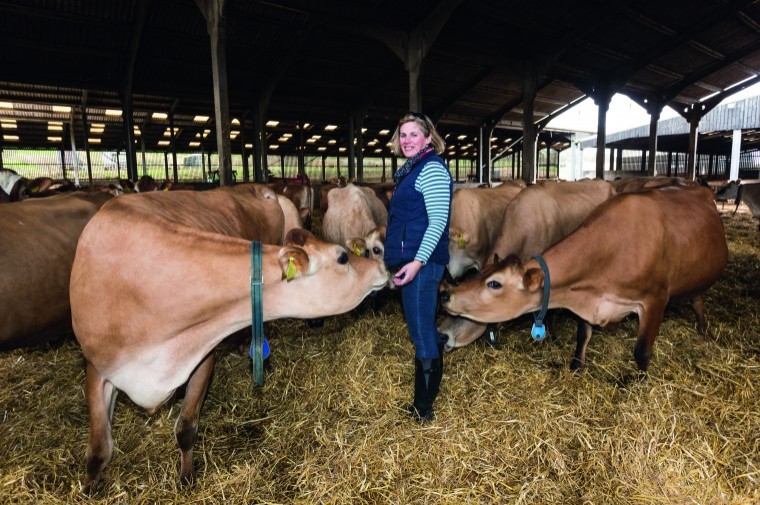Editorial deadlines are such that I write this some time ahead of when you get to read it, but as I write this summer seems to have ended abruptly, with much colder weather and rain appearing. While needed by many, as I write this the weather has stopped progress by the drill, although thankfully drilling is really all that remains to do as the maize harvest was tidied up just before the weather broke.
Given the grass growing season, it’s nice to see the maize clamps so full; we purchased 40 acres of standing maize from a neighbour and that has certainly helped. We always like to feel we have a forage buffer over and above what we need for one year; over the past two seasons that has been eroded, so it’s nice to look at the clamps and feel that the buffer is now restored for maize at least.
Grass stocks will be tight and we will have to monitor this closely over the winter to ensure we get through. We have sown an increased area of grass for next year and fully expect an early start to grass silaging come next spring (let’s hope the weather obliges). For now and most of this winter the cow diet has changed to reflect the silage stock levels, with increased levels of maize silage going in; so far at least the cows are certainly enjoying the slight change in diet.
Covid-19 still seems to dominate, with no end in sight. The children all find the new normal is “just the way it is” and have accepted the new regimes without exception. Each and every organisation has had to adapt its way of functioning. Whether or not it’s for the good remains to be seen.
The funky facemasks are something to behold and quite the new trend. There is even a diamond encrusted face mask apparently, yours for the bargain price of £1.5m. The fashion industry is nothing if not inventive! School issue or handmade will be perfect. More soberingly, though, it looks like it will take a few generations to repay the enormous debt the country has found itself in. Couple that with the ever-complicated situation with Brexit and we could be in for some sobering circumstances in the months and years ahead.
As South East Farmer goes to press, several county agricultural shows have already been cancelled for 2021. Unfortunately, this will have an impact throughout the farming industry; a great social opportunity for many and a shop window for others?
The price of hay and straw seems to have escalated out of control in recent months. I find it hard to believe that farmers in the West Country are paying £115-120 for straw delivered. How is this sustainable? The price of good quality hay has continued to rise. In the South East we have been bringing straw down from the Cotswolds. Hay is in short supply at the moment. Hopefully, farmers will open the shed doors in the next few months.
A last-ditch attempt to get dairy workers included on the government’s Shortage Occupation List has been rejected this month following a four-month consultation. Farm workers will not be added to the Migration Advisory Committee (MAC) list, but occupations including butchers, bricklayers and welders will.
The MAC launched a call in May for evidence into the skills shortage and this was delivered to the Home Secretary. In the report it stated that they didn’t recommend adding farmers to the shortlist. 80% of farmers are self employed so the benefits of being added to the shortlist were limited. Farms relying on foreign labour could be left with a severe labour shortage next year when the new points-based immigration system is put into place. The RABDF (Royal Association of British Dairy Farmers) said this would give priority to those with “the highest skills and greatest talents”, with dairy workers not falling into these categories.
There are some real concerns that post 2021 some of our largest, most technically advanced dairy farms could be lost due to their reliance on foreign labour. Should this happen the repercussions would be felt throughout the industry, with all associated businesses such as feed companies and vet practices affected, let alone the milk supply in this country. A survey by the RABDF in 2016 found that over half the respondents employed staff from outside the UK. This represents a 24% increase over the past five years.




